Madrid Middle East Peace Conference Convenes
The Soviet Union and the United States convene the Madrid Middle East Peace Conference, based on a two-track approach for bi-lateral as well as multi-lateral talks.
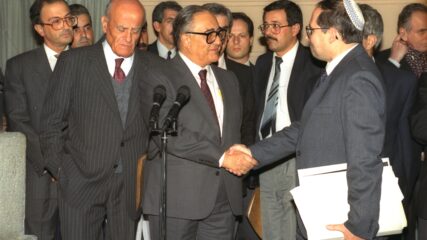
The Soviet Union and the United States convene the Madrid Middle East Peace Conference, based on a two-track approach for bi-lateral as well as multi-lateral talks.
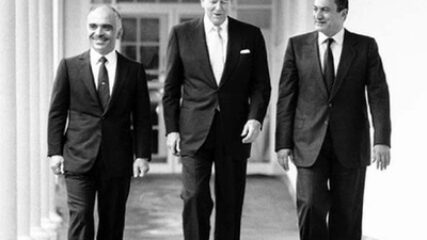
King Hussein of Jordan announces his intention to politically disengage from the West Bank, leaving the PLO to fill the political vacuum.
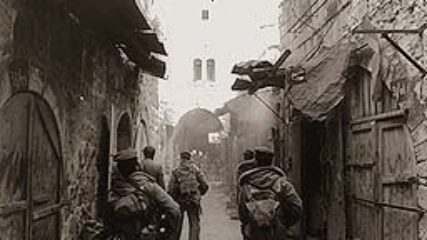
December 9, 1987 Riots erupt in the Gaza Strip and the West Bank in what comes to be recognized as the start of the First Intifada, an Arabic word meaning “awakening” or “uprising.” The immediate…
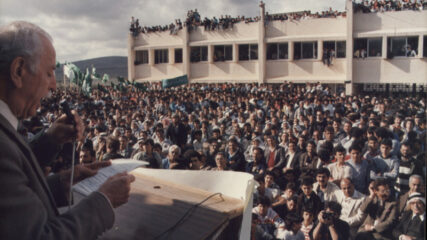
June 24, 1987 Arabs across Israel hold an Equality Day strike, organized by the National Committee of Local Arab Council Heads, to demand an end to all discrimination against Israel’s 700,000 Arabs, who at the…
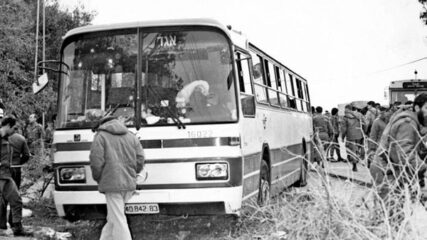
Egged bus 300 traveling from Tel Aviv to Ashkelon is attacked by four Palestinian terrorists. They take the forty passengers hostage.
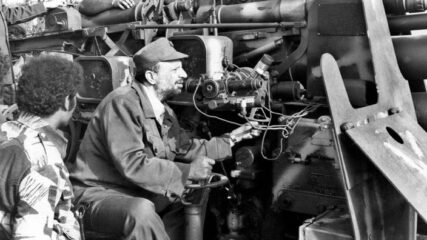
Palestinian militant factions unsuccessfully challenge Arafat’s control during the First Lebanon War.

Chez Jo Goldberg, a Jewish deli in Paris, is attacked by two terrorists wielding grenades and machine guns. Six people are killed and twenty-two injured. The attack is believed to have been planned and carried out by the Abu Nidal Organization, an international Palestinian terrorist group.
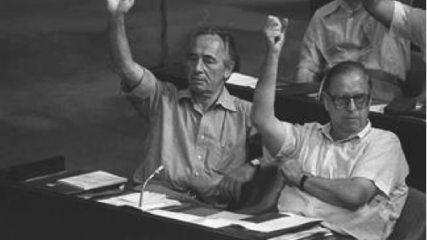
In 1950, the Knesset passes a law that states, “Whereas with establishment of the state of Israel, Jerusalem once more becomes the capital.” In 1980, the Knesset elevates the law to a Basic Law, giving the political status of Jerusalem increased legislative weight.
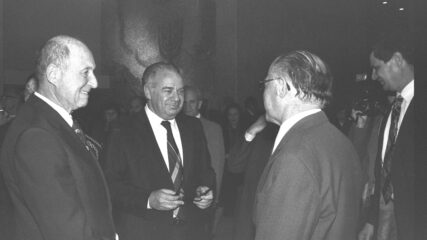
The Israeli Supreme Court rules on an appeal by Arab landowners that the Gush Emunim settlement of Elon Moreh must be dismantled because of a lack of evidence that it was established for security reasons.
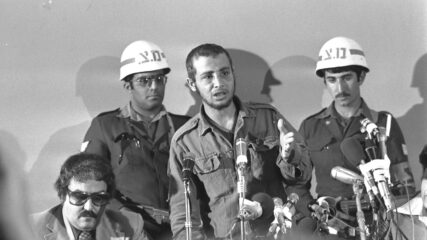
A group of eleven Palestinian terrorists, who had departed from Lebanon by boat, land on a beachhead north of Tel Aviv and embark on one of the worst terrorist attacks in Israel’s history.
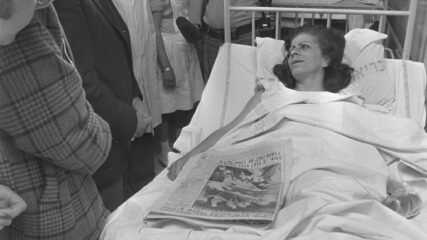
March 6, 1975 An eight-man Palestine Liberation Organization raid planned by Abu Nidal hits the beach in Tel Aviv around 11 p.m. and, after being spotted by police, attacks the Savoy Hotel. The terrorists kill…
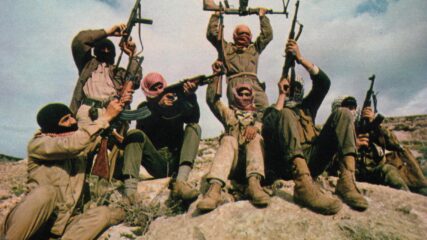
September 17, 1970 King Hussein sends the Jordanian army to attack the headquarters of Palestinian militant groups in and around the capital, Amman, and the city of Irbid, where the militants, known as fedayeen, had…
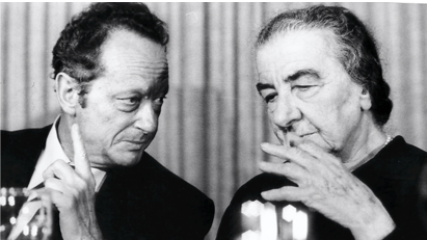
Deputy Prime Minister Yigal Allon, a former IDF general, reveals in remarks to the Foreign Press Association of Israel his plan for “home rule” for Arabs living in the West Bank.
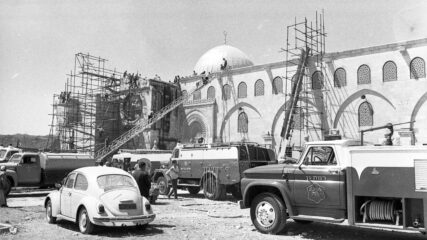
August 21, 1969 A new immigrant to Israel, Denis Michael Rohan, sets fire to Al-Aqsa mosque in Jerusalem. Born and raised in Australia, Rohan moved to Israel only a few months before the attack. He…

May 23, 1969 Pioneering Knesset member Hanin Zoabi is born into a Muslim family in Nazareth. Zoabi earns a bachelor’s in philosophy and psychology from the University of Haifa and a master’s from the Hebrew…
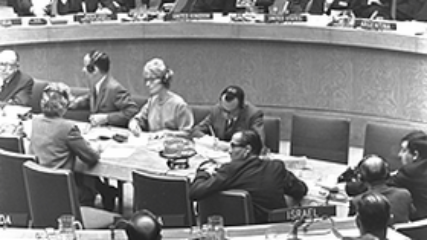
In the wake of the June 1967 Six Day War, the United Nations Security Council adopts Resolution 242, a document which has served as a framework for all major Arab/Israel negotiations since.
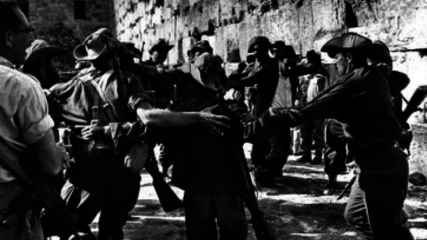
Following Israel’s victory and subsequent acquisition of Jordan’s territory along the West Bank of the Jordan River in the war, the Israeli government annexes roughly 70 square kilometers of land next to West Jerusalem.

February 2, 1965 The Knesset revises the Absentees’ Property Law to allow the Custodian for Absentees’ Property, a state office, to maintain, rent or sell property in Israel held in a waqf, an endowment created…
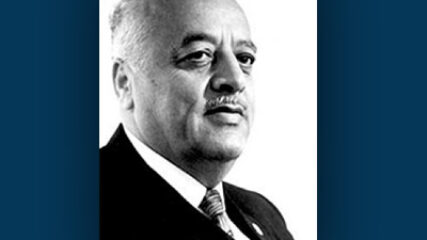
The Palestine Liberation Organization (PLO) is established during a Palestinian National Council meeting of nearly 400 delegates convened by King Hussein of Jordan.
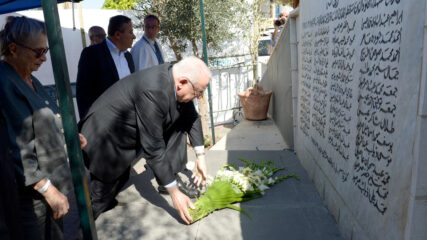
IDF troops kill 48 Israeli Arabs returning from their fields at dusk.

Killed in an ambush along the Gaza border, Ro’i Rothberg is eulogized by Moshe Dayan. Rothberg becomes a symbol for the inability to achieve peace in Israel’s early years.

Two Israeli paratrooper platoons made up of approximately fifty IDF soldiers storm an Egyptian army camp in Gaza. The raid is a reprisal for continued fedayeen (Palestinian militants) attacks against Israeli civilians.
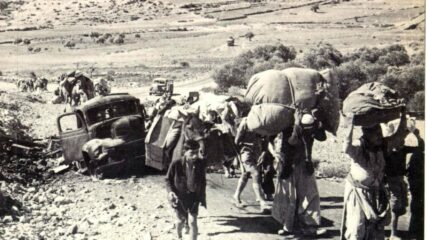
December 11, 1948 The United Nations General Assembly passes Resolution 194, addressing “the situation in Palestine” amid the ongoing Israeli War of Independence, on a vote of 35-15 with eight abstentions. The resolution never references…
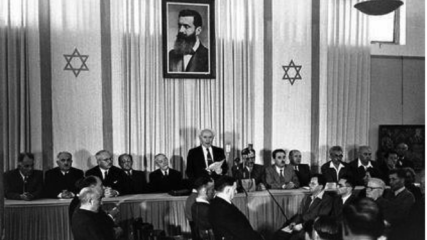
On Friday afternoon in the Tel Aviv Museum, David Ben-Gurion, chairman of the Provisional State Council, declares Israel’s independence. The United States is the first country to recognize the new and already besieged state of Israel.